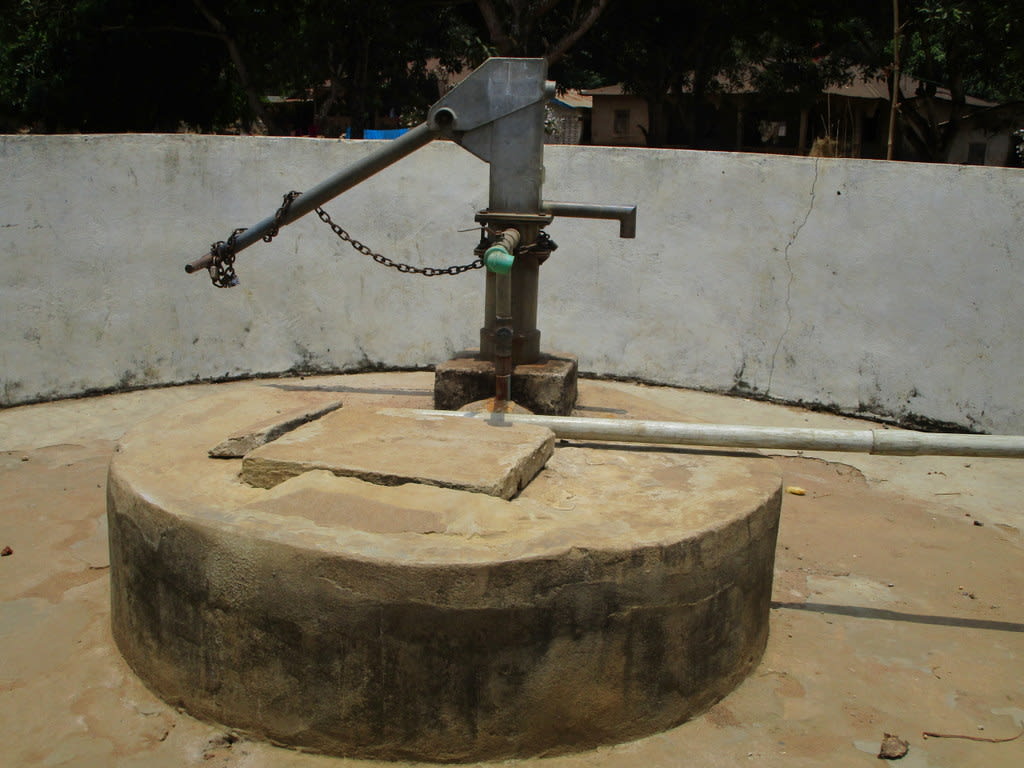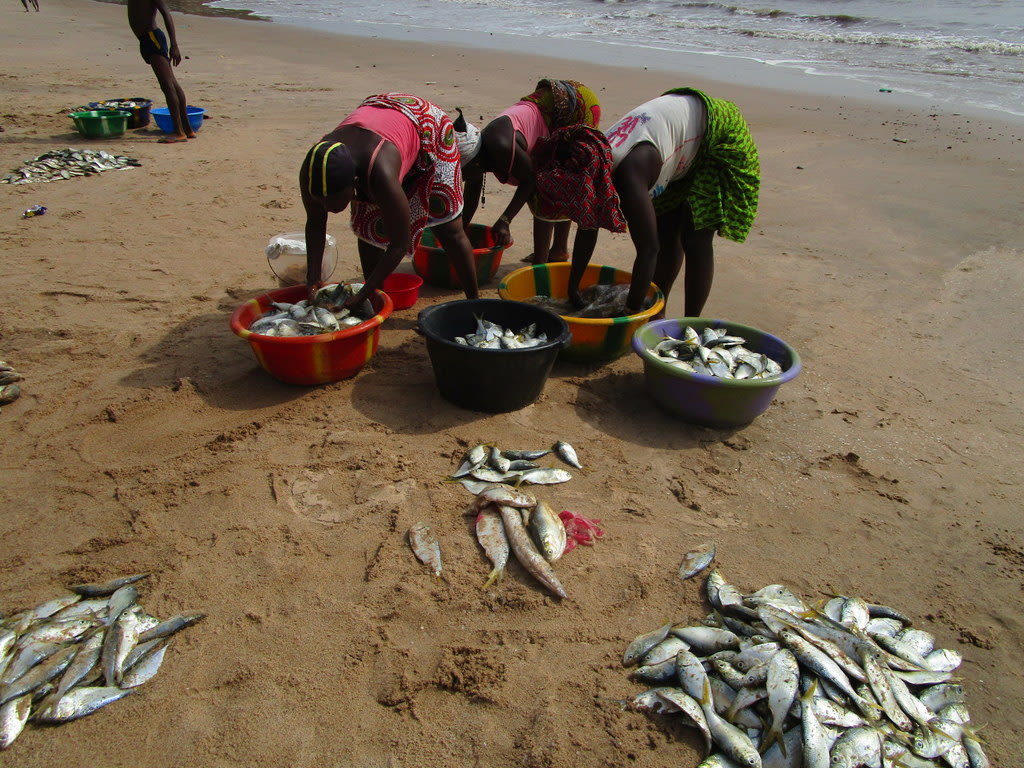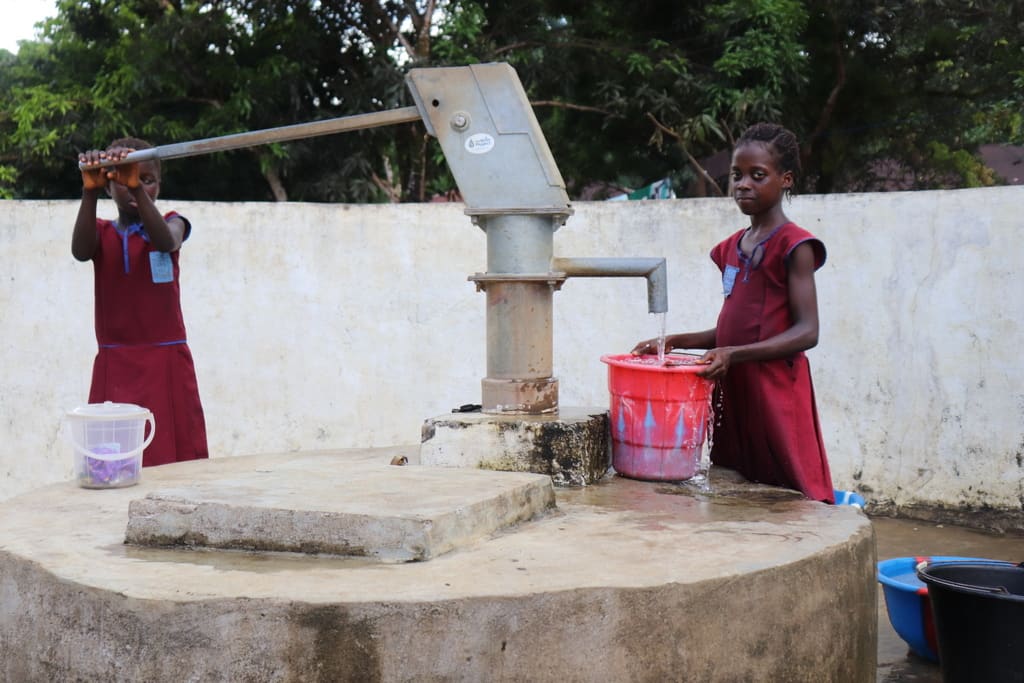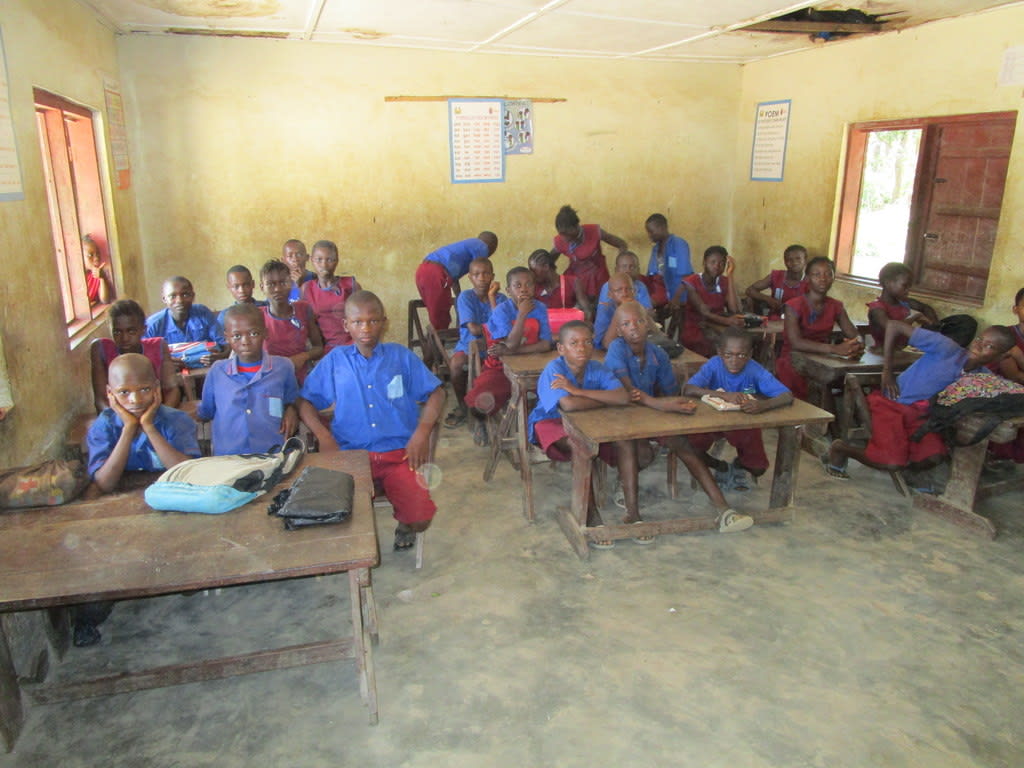The well at Pewullay Church of God Prophecy Primary School was constructed by the community years ago. We have monitored this well on a quarterly basis through the years and have recently noticed that the water table has dropped and the community population has increased, causing there to be major shortages of water.
The source was intended to support both the school and the nearby community, but there are months of each year when it serves neither. People must turn to a nearby swamp to meet their water needs. That means they are now drinking from the same water source where clothes are cleaned and from which animals drink. This open and unprotected source is totally unsafe for drinking.
Packaged water is always available as long as an individual has the necessary buying power. This alternative still isn't ideal, since packaged water is not closely regulated.
One major consequence is how the students lose valuable study time. When kids leave school to find water in other communities, they are pushed to the back of the line and as a result, they spend most study time waiting for access to water.
Secondly, hygiene and sanitation are compromised because of water shortage. The handwashing facilities are often without water and even the floors cannot be scrubbed regularly. So, diseases are easily transferred due to hand contact among the pupils.
The good news is that the well (seen below) is cared for properly and treated with chlorine every three months. That means that a safe, reliable source is possible if we just drill deeper.

"I must say that we are been impeded in maintaining good hygiene and sanitation by acute water shortage in this school. But I am sure that if we have a reliable water source, we are sure to maintain a hundred percent hygiene and sanitation status," Mr. Seimah Kamara, a teacher at the school, said.
Pewullay is a rural community and most of the buildings are made of locally produced mud blocks with cement plastering. These are arranged in straight lines along the roads in the community. However, there are a few urban neighborhoods on the outskirts of this community, suggesting that in the coming years this community will experience some urbanization.
Presently, this community is very peaceful during the day because most of the able-bodied individuals are at their various livelihoods. Some of the parents of the children at the school are fishermen. So, some of the children are expected to go to the beach to assist with the fishing business of drawing in nets, sorting fish and helping their parents.

What we will do:
Training
There will be hygiene and sanitation training sessions offered for three days in a row. We will teach about good and bad hygiene, penning in animals, and building good tools like handwashing stations and dish racks. Most importantly, the trainer will emphasize the importance of having and using even basic pit latrines.
Well Rehabilitation
We see that there's been a drop in this area's water table and the well is going dry. We feel it is important to convert this hand-dug well to a borehole at the bottom, thus giving this community a year-round source of safe drinking water.
We will be hand-drilling a borehole down inside this hand-dug well. The community will host our drill team for days at a time, and may also provide labor. Women will volunteer to cook rice for the team and the other community volunteers.
Once this plan is implemented, this community will have access to safe drinking water in both quality and quantity, even through the dry months.

 Protected Dug Well
Protected Dug Well

































